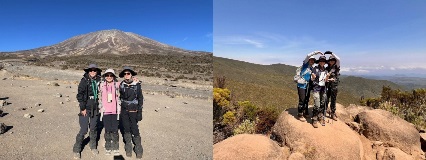
Investor Kelvin Chiu loves to experience the natural world, be it observing wildlife on safaris or trekking in the mountains. His emotional connection with natural landscapes has motivated him to protect them. An epiphany occurred during a diving trip at Raja Ampat, an Indonesian archipelago replete with colourful coral reefs and mesmerising marine life.
“I was moved by the beauty and richness of marine life there. It is also a very successful conservation story — the area has immense biodiversity and may hold the key to climate-resilient reefs worldwide in the future. This trip was a huge source of inspiration for me personally; it became clear that I wanted to contribute towards the conservation and restoration of natural habitats,” Mr Chiu shared.
Driven by his newfound purpose, Mr Chiu founded Silverstrand Capital in 2018. His family office champions biodiversity conservation through impact investments. This year, they found a partner to further its mission, the NUS Centre for Nature-based Climate Solutions (CNCS). It is establishing the Silverstrand Scholarship for Nature-Based Solutions to support one of the Centre’s PhD students. Their research delves into conservation finance.
“We hope to help develop the next generation of thought leaders in the natural capital space. The scholar can hopefully address key gaps in the academic literature which would enable and accelerate the widespread adoption of nature-based solutions,” Mr Chiu said.
The collaboration was forged based on a common vision of how to save the natural world. Mr Chiu resonates with CNCS’ interdisciplinary approach, which recognises that a project’s long-term success depends on whether it is sustainable — environmentally, as well as financially.
Naysayers often question if profits and purpose can go hand in hand. But Mr Chiu believes that there are win-win opportunities for the environment and the financial bottom line.
“Encouragingly, we are seeing a societal shift where individuals, corporations and governments increasingly recognise the value of nature. This means that good stewards of the environment will be rewarded, and organisations that adopt a more holistic, sustainability-focused approach beyond short-term profits create long-term value for owners and shareholders. Ultimately, investing in nature has clear economic benefits for both the organisation and society at large,” he elaborated.
But it’s more than good business sense when it comes to bankrolling conservation projects. Take it from Mr Chiu, who said: “On a more philosophical level, I feel it is our collective duty and responsibility to protect nature. Working towards that goal that is bigger than ourselves gives us a strong sense of purpose and meaning in the world.”






